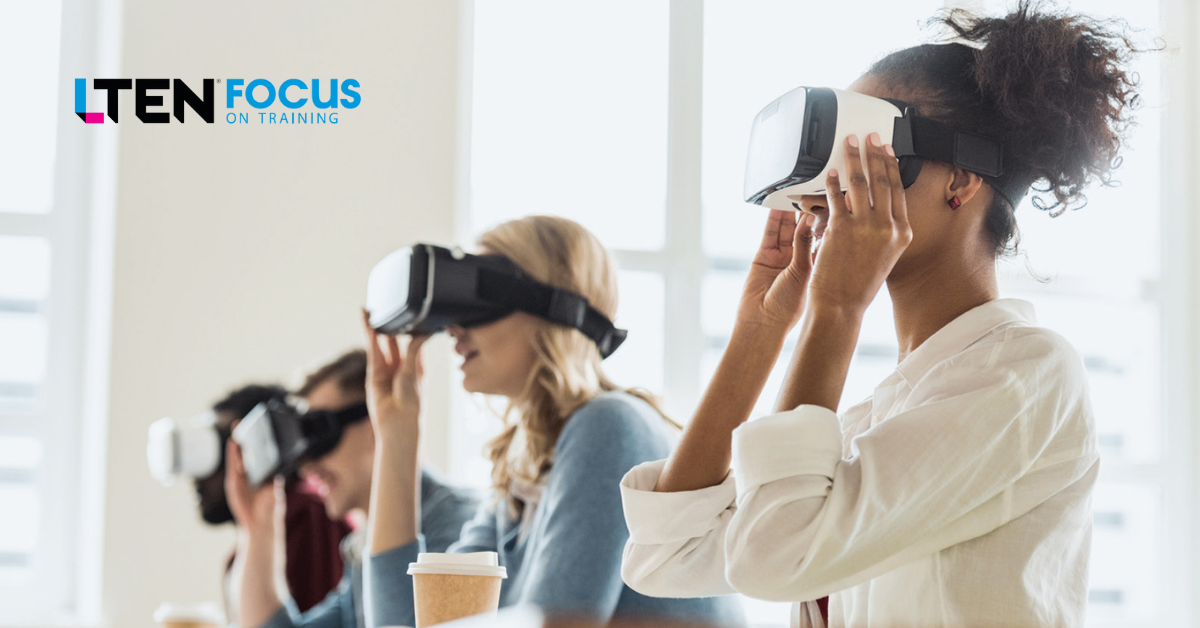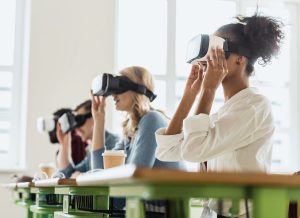
TECHNOLOGY – By Shawn Jordan
Mindfulness can make training more impactful
Consider for a moment the potential of one’s own mind to imagine new environments, to envisage complex situations and to measure choices and outcomes.
We do these things all the time when we plan and create and dream. As leaders and trainers in learning and development (L&D), we get to harness that power in our audience’s minds through our training engagements and learning experiences.
Our capacity to tap into that power is being catalyzed by the veritable digital renaissance in which we are living, an era notable for technological advancements like the sophisticated spatial computing of virtual reality (VR) headsets released by Apple and Sony. These technological developments excite us as L&D experts, as they propel the possibilities of immersive learning to new heights.
Immersive Environments
To effectively utilize immersive learning, it is crucial to match the use with the right training need. Immersive experiences are particularly powerful for preparing individuals for challenging professional situations, providing a safe “sandbox” space to experience and learn from potential real world scenarios, get hands-on skill development, experiment and learn from failures in a risk-free setting.
Moreover, immersive learning expands the horizons of the traditional classroom, allowing learners to explore microscopic environments, abstract and imaginative realms, and broaden their perspectives significantly.
One initiative out of Telford College in the United Kingdom proved to be a testament to this rapid technological evolution and its potential. In this initiative, the virtual environments provided nurses in training with a safe setting in which they were immersed in scenarios that were emblematic of some of the toughest challenges they might face in practice.
The choice in this case to use VR was strategic, with the design being to intentionally simulate stress and feelings of overwhelm for specific training outcomes, and it’s important to recognize that not all immersive experiences aim for such intensity.
Depending on the learning objectives, other types of immersion that differently activate the senses or leverage other learning modalities might be more appropriate. In some cases, immersive experiences that are calmer and more reflective can be equally powerful in their impact.
Infusing Mindfulness
Immersion can be further deepened by infusing the practices of mindfulness, which consists of focused attention and open awareness, at the right moments in the learning experience. With its focus on breath control and physiology, mindfulness shows positive benefits on outcomes associated with successful learning, including (but not limited to) improvements in anxiety levels, resilience to burnout, empathy and compassion.
In adult education, incorporation of mindfulness practices is emerging as a complement to traditional cognitive learning methods, producing a more holistic educational approach. The impacts of these methods are revealed when we pair them with strategic measurements, for example, assessing how learners’ confidence or perceived self-efficacy change in relation to the learning experience.
Imagine, for example, learners experiencing a guided meditation at the start of a training session to center their minds on an intention or challenge, or at the end of the session to envision their future selves in action. In the mind’s eye, learners can imagine themselves in all sorts of spaces – conversing with a customer, standing on a stage or navigating a new environment. Our role then, as trainers and teachers, is to provide the scaffolding for these types of experiences.
Conclusion
Weaving such mindful immersion practices into learning experiences deepens the opportunity for impactful learning. These practices, along with cleverly leveraged technology, can support the development of people skills, application of practical skills and building of new perspectives.
By combining the immersive powers of digital technology with the transformative potential of mindfulness, we can offer learning experiences that are deeply engaging and profoundly impactful, preparing professionals for the multifaceted challenges of their roles.
 Shawn Jordan is scientific strategy director for Nazaré, part of Inizio Engage. Email Shawn at shawn.jordan@nazare.inizio.com or connect through www.linkedin.com/in/shawnnelsonjordan.
Shawn Jordan is scientific strategy director for Nazaré, part of Inizio Engage. Email Shawn at shawn.jordan@nazare.inizio.com or connect through www.linkedin.com/in/shawnnelsonjordan.









